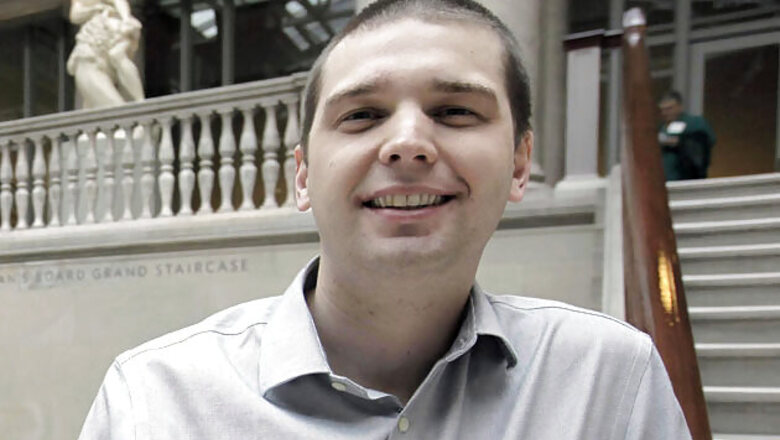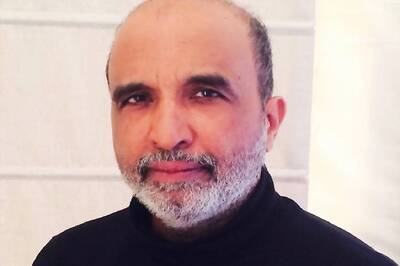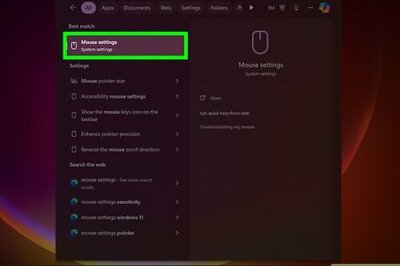
views
New York: Struggling online deals pioneer Groupon has fired its quirky founder and CEO Andrew Mason amid worries that people are tiring of the online restaurant, spa and Botox deals that Groupon built its business on.
In a refreshingly candid memo to staff, Mason said Groupon's employees "deserve the outside world to give you a second chance. I'm getting in the way of that. A fresh CEO earns you that chance."
Shares jumped more than 4 per cent in extended trading following Thursday's announcement, which had been anticipated for months. Executive Chairman Eric Lefkofsky and Vice Chairman Ted Leonsis were appointed to the Office of the Chief Executive while a replacement is found.
Mason made no qualms about what had happened.
"I've decided that I'd like to spend more time with my family. Just kidding - I was fired today," Mason, 32, wrote. "If you're wondering why. you haven't been paying attention."
He referred to controversy over the accounting practices used in regulatory filings ahead of Groupon's November 2011 initial public offering of stock as well as "two quarters of missing our own expectations and a stock price that's hovering around one quarter of our listing price."
"The events of the last year and a half speak for themselves," he wrote. "As CEO, I am accountable."
The announcement came one day after Groupon reported a bigger-than-expected loss and gave a weak revenue outlook for the current quarter. The guidance had fueled investor worry - which started even before Groupon's IPO - that people are suffering from fatigue over the frequent emails flooding subscribers' inboxes. There were also worries that the company's efforts to broaden into an e-commerce powerhouse haven't been paying off.
Groupon said Mason was not available for interviews.
His ouster has been "fairly widely expected" given the company's performance, said Gartner analyst Michael Gartenberg. Mason was CEO, after all, "and as the expression goes `the buck stops there,'" he added.
"The question is whether this as a business model can last," Gartenberg said. "It's easy to replicate and under a lot of pressure. The question is where the company goes from here.... Clearly something wasn't working, isn't working."
In a statement, Leonsis said, "Groupon will continue to invest in growth, and we are confident that with our deep management team and market-leading position, the company is well positioned for the future."
Groupon makes money by taking a cut from the online deals it offers on a variety of goods and services. Investors have questioned whether that business model is sustainable and leads to growth over the long term - and whether the company can not only grow its customer base but make more from each subscriber.
Groupon had the advantage of being first, but the model is easy to replicate. It has spawned many copycats after its 2008 launch, from startups such as LivingSocial to established companies such as Google and Amazon.com Chicago-based Groupon also has faced scrutiny about its high marketing expenses, enormous employee base and the way it accounted for revenue.
"There was always a sense that Groupon had a lot of good ideas but no real focus," said Benchmark Capital analyst Daniel Kurnos, adding that with Mason's ouster the board made the decision to try to "get the ship moving in the right direction."
Can a new CEO answer all their problems? Kurnos doesn't think so. But maybe he can get Groupon more focused and steer it toward more traditional businesses. Groupon Goods, for example, which sells products rather than restaurant or spa deals, has been performing well. With its deals, Groupon's challenge is to balance pleasing merchants who sell the deals with pleasing the customers who buy them, he added.
"A lot of people want to say that the daily deals business is a zero," he said. "I don't think that's true."
Mason, a Northwestern University graduate and former punk band keyboardist, founded Groupon in 2008. By 2010, Groupon was available in 25 countries and its staff ballooned to nearly 10,000, many times that of other Internet darlings such as Twitter, Facebook or Zynga Inc., the other fallen star of the latest swath of Internet IPOs.
Gartenberg, like other analysts, wasn't surprised by Mason's ouster, but by the fact that "it took them this long." He called the way it came out "refreshingly honest."
"There was no pretense that he is leaving to pursue other interests or spending more time with his family," he said.
Groupon's stock has lost about 77 per cent of its value since the IPO after losing $1.45, or 24 per cent, to close Thursday at $4.53. After the announcement of Mason's ouster, the stock gained 19 cents to $4.72 in after-hours trading. The modest 4.2 percent gain, compared with the 24 per cent drop earlier in the day, is a sign that investors will need more than the CEO's firing to start believing in Groupon again.



















Comments
0 comment